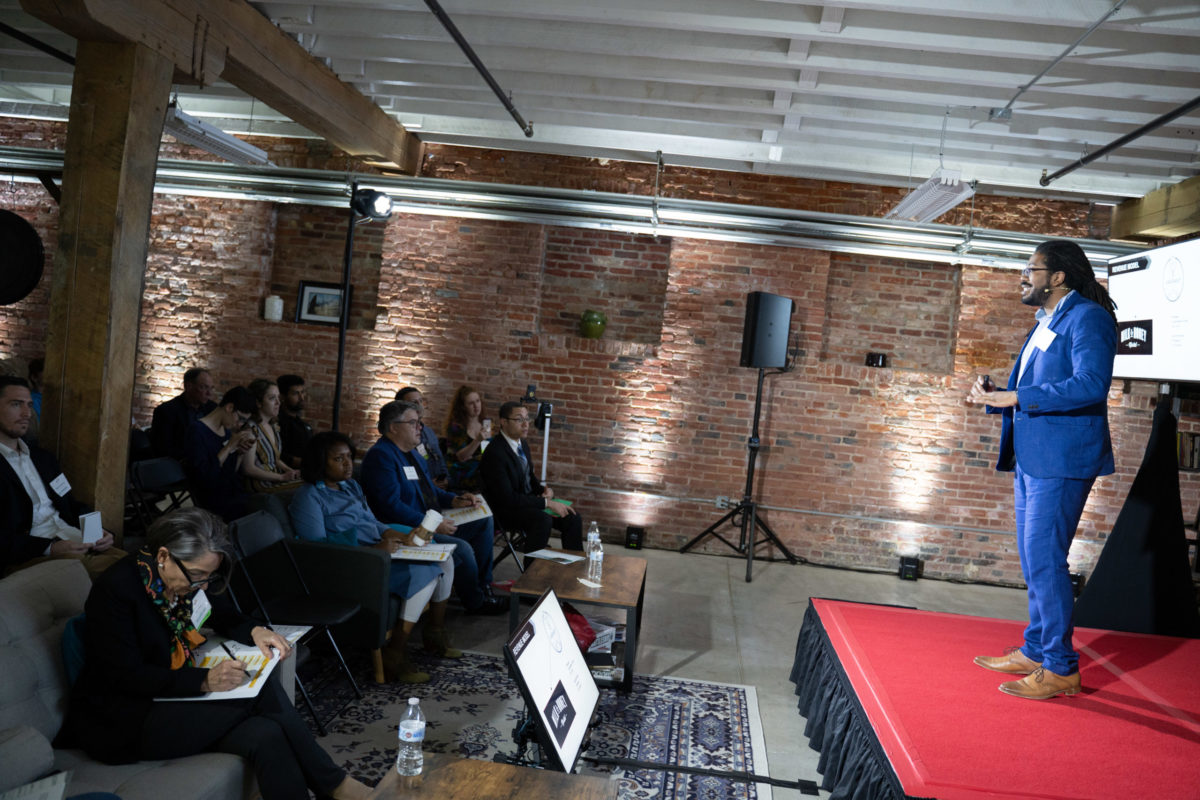ETC’s AccelerateBaltimore will be back in 2020, with a three-month program supporting startups as they develop a minimum viable product.
The 13-week accelerator will accept five companies, each of whom will receive $50,000, instructional programming and access to mentors. Applications are open through Aug. 1, and the program is set to begin Sept. 15 at ETC.
Returning for its ninth year, the program is supported by the Abell Foundation and continues its aim of building new companies that can make an economic contribution in Baltimore. This year, the ETC is honing an additional focus as it looks to galvanize technology that can help address some of Baltimore’s most vexing challenges.
The accelerator is giving priority to companies focused in the following areas: public safety, public health and wellness, public transportation, homelessness and education.
ETC President Deb Tillett said the focus took shape following last year’s cohort as the tech hub collaborated with Amazon Web Services, the mayor’s office and the Baltimore Development Corporation on this year’s program. It is taking on added urgency now, with the coronavirus pandemic requiring new approaches to public health, shifting education out of classrooms, and bringing additional needs to keep front-line services for people experiencing homelessness, public safety and transportation.
It has experience guiding such companies before: Alums of the program, including Gunbail founder Trevor Brooks (who also runs Homesafe1st) AI-powered digital stethoscope Sonavi Labs and transparent surgical mask maker Clearmask, are solving problems that align with the focus areas.
“We’ve got a history of solving these problems,” Tillett said.
The ability for the investment and programming to make a meaningful impact on a company’s minimum viable product, or MVP, will be a key area where the panel reviewing applications will be focused. Founders must have a tech background, and the planned work on the MVP has to be completed within the 13 weeks.
ETC’s offering of $50,000 to each company during the accelerator marks a change from previous years when $25,000 was offered to each, with one company receiving $100,000 at the conclusion.
At the same time, many of these solutions will need the buy-in of government and other civic stakeholders to be implemented. So programming will have a new focus on these civic processes, as well as the problems.
“There are going to be different speakers and sessions to help people understand how to navigate the government, how do you respond to an RFP, how do you think about reaching out to an entity like the City of Baltimore,” Tillett said.
After advancing an MVP for 13 weeks, the idea is to put a company in position to work directly with a local government to pilot technology, and perhaps be on the road to getting implemented.
Apply here






